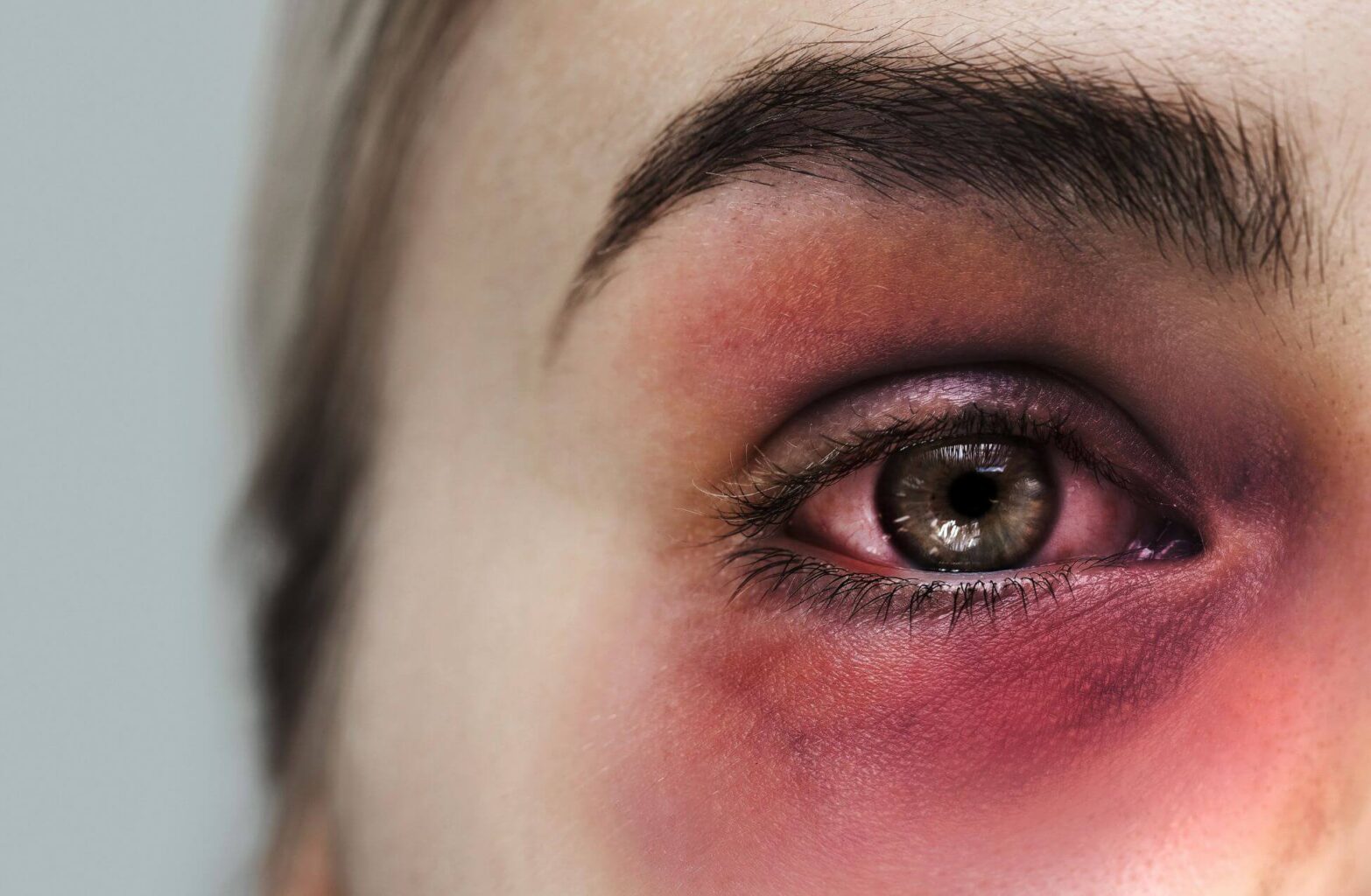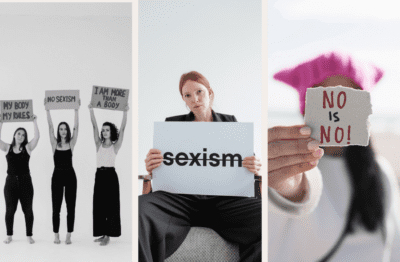Domestic abuse victims in England and Wales are being consistently failed by the UK criminal justice system at every stage of their journey to safety and justice, according to a new landmark report.
The report, titled Shifting the Scales: Transforming the Criminal Justice Response to Domestic Abuse, highlights what survivors and campaigners have been saying for years – that the system meant to safeguard and protect victims is often doing the exact opposite. While the Government has publicly pledged to halve violence against women and girls by 2030, the latest findings cast doubt on the credibility of that promise.
Published by the Domestic Abuse Commissioner, the report finds that victims who seek help face inconsistent police responses, inadequate support, court delays, and even the early release of their abusers. Just 6% of domestic abuse cases recorded by police result in a conviction. Meanwhile, fewer than one in five survivors feel confident enough to report in the first place.
A System Not Fit for Purpose
Domestic abuse remains one of the most prevalent and devastating forms of violence against women and girls in the UK, yet the criminal justice system continues to fail those seeking protection. In the Commissioner’s own words, the system is ‘ill-equipped to respond to the enormity of the challenge’. Despite police receiving a domestic abuse call every 30 seconds, fewer than one in five victims feel able to report to police. Of those who do, only 12% say they received the response they needed. Survivors describe experiences not of protection or justice, but of being disbelieved, retraumatised and, in some cases, even criminalised. Unsurprisingly, public confidence in a system that is clearly unfit for purpose has fallen to an all-time low.
“It feels to me like if they can’t do anything with the perpetrator, they put it all on the victim.” – Domestic Abuse Survivor
A central concern raised in the report is the inconsistent and often inadequate response from frontline police officers. Many are not equipped with the training or understanding needed to recognise and respond to the complex nature of domestic abuse – especially non-physical forms such as coercive control, stalking, psychological abuse, and harassment. As a result, serious offences are frequently overlooked or downplayed, leading to missed opportunities to safeguard victims and, in some cases, exposing them to further harm.
Even when legal protections are in place – such as Domestic Violence Protection Orders, non-molestation orders, no-contact orders, or restraining orders – enforcement is often inconsistent and poorly managed. Survivors are frequently left exposed to repeated intimidation and harassment, knowing the system either cannot or will not act swiftly to protect them.
The situation is further compounded by delays within the courts. Cases often take months or even years to come to trial, during which time survivors are left in limbo – emotionally, legally and financially. In some instances, perpetrators are released early from prison without proper risk management or communication with the survivor, reigniting trauma and undermining trust in the justice process altogether.
Another key failing is the system’s inability to provide trauma-informed, victim-centred support throughout a survivor’s journey. Many women report feeling disbelieved, judged or even blamed when they come forward. Instead of being met with compassion and understanding, they encounter suspicion, dismissal or bureaucratic indifference. For some, the experience of reporting abuse becomes a second trauma, and one that discourages them – and others – from ever seeking justice again.
A Postcode Lottery for Justice
One of the most damning indictments in the report is that survivors face a ‘postcode lottery’ when seeking justice – where the response they receive depends heavily on where they live and who they encounter in the system.
Across England and Wales, survivors face vastly different outcomes depending on which of the 43 police forces they engage with. Some forces demonstrate little understanding of abuse dynamics, while others appear ill-equipped to handle even basic safeguarding measures. In some areas, access to specialist support services, such as Independent Domestic Violence Advisors (IDVAs), is robust and embedded in the system. In others, survivors are handed a leaflet and left to navigate their trauma alone.
“You’re just lucky – who you get at the time, what officer you report to.” – Domestic Abuse Survivor
This inconsistency extends beyond policing into the wider criminal justice process. From decisions on whether to press charges, to how courts handle delays, bail, or protective orders, the quality of response is patchy and often inadequate. Victims have described feeling that their safety, and their chance at justice, is left to chance. The system, intended to uphold equal protection under the law, is instead perpetuating inequality.
The report also highlights that women from marginalised communities – particularly disabled women, migrant survivors, and black women – face additional and compounding barriers when seeking protection. Many fear they won’t be believed, citing experiences of racism, ableism, or xenophobia. For migrant women especially, the fear of reporting abuse is often intensified by the risk of immigration enforcement. Between April 2020 and March 2023, every police force in England and Wales referred domestic abuse victims to Immigration Enforcement – a practice that continues despite widespread calls for it to end.
The Domestic Abuse Commissioner for England and Wales, Dame Nicole Jacobs is calling for urgent reform, including stronger accountability for criminal justice agencies to ensure that victims receive consistent, effective responses, no matter where they live or who they are.

Police Failings: Abusers in Uniform Escaping Consequences
One of the most shocking findings in the Commissioner’s report is the extent to which domestic abuse allegations made against members of the police force are being routinely minimised or dismissed, exposing a deeply disturbing crisis within UK policing where abusers are not only operating within the ranks but are shielded from accountability by a culture of institutional protectionism, corruption, and misogyny. Between April 2023 and March 2024, police forces in England and Wales recorded 1,294 allegations of domestic abuse perpetrated by individuals within their own workforce. These allegations involved 899 separate individuals, which accounts for approximately 0.4% of the entire police workforce, including not just serving police officers, but also PCSOs (Police Community Support Officers) and special constables.
Despite the seriousness of these allegations, only 4% of the individuals accused were dismissed from the police service. The vast majority faced minimal consequences and in many instances, complaints were either not upheld or handled in a way that failed to address the severity of the behaviour reported. This failure points to something far more sinister than administrative inefficiency. It suggests an entrenched culture of institutional corruption, where police forces prioritise protecting their own reputations over safeguarding victims.
“Why did they use their professional standing to help their friends? It was just that whole culture where they felt it was acceptable to do that because he was one of theirs, and nobody stood up or questioned it.” – Domestic Abuse Survivor
This trend raises deeply troubling questions about institutional accountability. For victims of police-perpetrated domestic abuse, whether they are members of the public or partners of serving police officers, the message is clear – the systems designed to deliver justice are not only failing them, but are actively protecting those responsible. Survivors are left without recourse or support, while perpetrators are shielded by the very institutions meant to hold them accountable. The badge, it seems, offers not just authority but immunity to consequences as well.
Layered into this is a clear pattern of institutional misogyny. Survivors and campaigners have long warned that the justice system – and policing in particular – fails to take violence against women seriously. The report adds further evidence, showing how some officers discredit victims, dismiss non-physical abuse, or manipulate internal systems to avoid investigation. In some cases, survivors were even threatened with counter-allegations or discouraged from making complaints.
This is not about a few ‘bad apples’ – this is an institution that is rotten at its core. It’s about systemic structures that enable abuse, silence victims, and prioritise internal loyalty over public accountability. Until the root causes – corruption, misogyny, and institutional protectionism – are confronted head-on, survivors will continue to be retraumatised by the very system they turn to for protection.
The Domestic Abuse Commissioner said: “As domestic abuse is recognised for the crime that it is, the demand in the system and the needs of victims and survivors have been met with a criminal justice system ill-equipped to respond to the enormity of the challenge. Poor criminal justice outcomes and systemic failings have put victims and survivors’ faith in the system at an all-time low.
“The current picture is stark, where just 6% of police-recorded domestic abuse reaches conviction – and only a fifth of victims have the confidence to report in the first place. That is why now is the time to share my vision to reform the criminal justice system’s response to domestic abuse.
“We cannot expect victims to report abuse if they believe officers are protected by the badge they wear. The force meant to protect the public is, in too many cases, protecting perpetrators in its own ranks instead. When those entrusted with upholding the law abuse their power and face no real consequences, the result is not just a betrayal of public trust – it’s a collapse of the very foundations of justice.”
In her recommendations, Dame Nicole calls for urgent reform across four key areas: data and accountability, multi-agency working, resourcing, and the prioritisation of domestic abuse in criminal justice responses. She warns that these changes cannot be made in isolation. The system, she says, is fractured and siloed. Unless the recommendations are implemented as a whole, victims will continue to fall through the cracks.
Responding to the report, the Victims’ Commissioner for England and Wales, Baroness Newlove, said: “Victims and survivors of domestic abuse must be able to trust in our criminal justice system – that it will provide a robust, trauma-informed response that prioritises their safety while holding perpetrators accountable. Yet this welcome report from the Domestic Abuse Commissioner lifts the lid on the harsh reality of our criminal justice response to domestic abuse.
“Domestic abusers have no place in our police forces, but this report makes clear that victims of police-perpetrated domestic abuse continue to be let down. Far from enforcing a zero-tolerance approach, police chiefs are failing to root out abusers within their own ranks.
“The report also exposes system-wide failings, including a lack of understanding of abuse dynamics within policing and the judiciary. Poor enforcement of protective orders, an under-resourced probation service, and long court delays all contribute to a system that erodes trust and puts victims at greater risk.
“Too often, victims are left in the dark due to poor communication. Making more domestic abuse victims eligible for the Victim Contact Scheme would be a welcome first step towards increasing confidence and trust by keeping victims informed about the status of their offender. Most survivors are currently excluded – this must change.”
At The Women’s Journal, we add our collective voice to the urgent call for systemic reform and accountability across the justice system. Without bold, coordinated action, the government’s pledge to halve violence against women and girls by 2030 will remain an empty promise – and more victims will continue to be failed by the very institutions meant to protect them.
The message from this report is clear – the UK’s criminal justice system isn’t just failing survivors – it’s making things worse. Instead of protection, many are being silenced, retraumatised, and denied justice. Real reform must prioritise the needs and safety of survivors, confront institutional misogyny, and break down the systems that enable abuse.
If you or someone you know is experiencing domestic abuse, help is available. You are not alone.
UK Domestic Abuse Support Services:
National Domestic Abuse Helpline (Refuge)
0808 2000 247 – Free and available 24/7
Women’s Aid
0808 2000 247 – Free and available 24/7
Southall Black Sisters
020 8571 0800 – Free and available Monday to Friday: 10am-4pm
Victim Support
0808 168 9111 – Free and available 24/7





